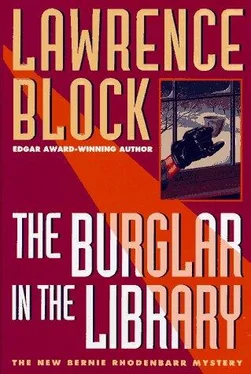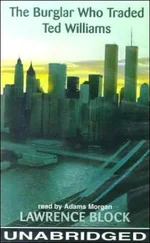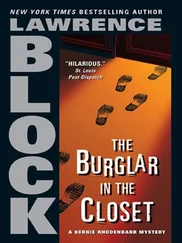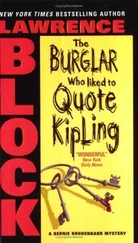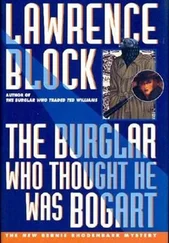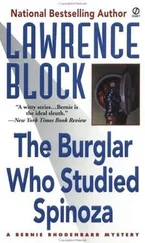“That makes a difference?”
“It’s a funny thing with inscriptions,” I said. “If the person it’s inscribed to is just Joe Schmo, the book tends to be a little less desirable than if it’s just signed.”
“Why’s that, Bern?”
“Well, think about it,” I said. “If you were a collector, would you want a book personally inscribed to somebody that nobody ever heard of? Or would you be happier with a simple signature?”
“I don’t think I’d care one way or the other.”
“You’re not a collector. Collectors care.” I thought of some of my more idiosyncratic customers. “About everything,” I said. “Believe me.”
“I believe you, Bern. How about a copy that’s inscribed to Sid Schmo? That’s Joe’s famous brother.”
“Now you’re talking. As soon as the person named in the inscription is prominent, the book becomes an association copy.”
“And that’s good?”
“It’s not bad,” I said. “Just how good it is depends on who the person is, and the nature of his or her relationship to the author. A book inscribed by Raymond Chandler to Dashiell Hammett would have to be the ultimate association copy in American crime fiction.”
“Bottom-line it for me, Bern.”
“Assuming near-mint condition, for the book and dust jacket, and assuming the handwriting is verifiably Chandler ’s-”
“Assume everything, Bern. Let’s hear a number.”
“This is just a ballpark figure, remember. We’re talking about a unique item, so who can say what it would bring?”
“Bernie-”
“Say twenty-five.”
“Twenty-five?”
“That’s ballpark.”
“Twenty-five thousand.”
I nodded.
“Dollars.”
I nodded again.
“And what percentage of that could you fence it for?”
“You wouldn’t need a fence,” I said. “Because no one would have reported it stolen, because who even knows it exists? You could walk up to any of the top dealers and put it on the table.”
“And when they asked where you got it?”
“You picked it up at a garage sale or found it on the two-for-a-quarter shelf at a thrift shop. Hell, I’m a book dealer. I could say it came in at the bottom of a carton of junk, and I assumed it was a book club reprint until I took a good look at it. You wouldn’t even have to say how it came into your hands. You could just smile wisely and keep your mouth shut.”
“So you could wind up with the whole twenty-five thousand.”
“Or more, if you stuck it in a Sotheby’s auction and two fanatics both decided they had to have it.”
“Wow.”
“But there’s no guarantee it ever existed in the first place,” I said, “and even if it did it probably disappeared long ago. Or it is still there, for all the good it does us, because it’s hidden away and you could go through the house from top to bottom and never find it.”
“We’ve got to look, Bern.”
“That’s what I figured.”
“Twenty-five grand.”
“It could be a lot less, you know. Maybe the dust jacket’s gone. Maybe the spine is faded. Maybe the pages are dog-eared. Maybe there’s insect damage.”
“Maybe a kid came along and colored in all the O’s,” she said. “Maybe a mad botanist pressed leaves between the pages. The hell with all that. We’ve got to take a shot at it, Bern.” She looked at me. “We’d never forgive ourselves if we didn’t.”
We had a short wait on the platform at Whitham Junction. Then the local for Pattaskinnick came chugging into the station, and when it chugged out again we were on it. The little train’s course ran north and east, and with each turn of its wheels the terrain grew more rugged and remote and the snowfall intensified.
By the time we got to Pattaskinnick it was dark out and the snow was several inches deep. Carolyn scooped up a handful and made a snowball, then looked around for something to throw it at. The only car in sight was a Jeep Cherokee with Buck’s Taxi Service inexpertly lettered on its side. You couldn’t peg a snowball at a cab and then expect the driver to make you welcome, so she shrugged and tossed the snowball over her shoulder.
“Hey!”
“Sorry, Bern. I didn’t know you were there.”
“Well, I’ve never been here before. Welcome to Pattaskinnick.”
“It’s like a village in the Cotswolds, isn’t it? Chipping Camden or one of those.”
“Sodding Boardham,” I suggested.
“Miss Jane Marple could be living in one of those cozy little cottages, Bernie. Knitting things and poking around in the garden and solving murders left and right.”
“Cottages? I don’t see any cottages.”
“Not with all this snow. But I’m sure they’re there. So’s our cab. Wouldn’t you think he’d hop out and help us with our bags?”
He did, finally, after we’d walked over and tapped on his windshield. I told him our destination and he clambered out from behind the wheel, a squat, broad-shouldered fellow with less than the traditional amount of space between his eyes. He wore one of those weird hunting jackets in orange camouflage, which makes it hard for deer to see you and hard for human beings to look at you, and he lifted our suitcases effortlessly into the Cherokee’s luggage compartment, then looked warily down at Raffles’s cat carrier.
“You got an animal in there,” he said.
“It’s a cat,” I agreed.
“I don’t pick up no animals.”
“But that’s ridiculous,” I said. “He’s not going to damage your car.”
“Ain’t a car. ’T’sa Jeep.”
“Even if it’s a brand-new John Deere tractor,” I said, “there’s no way on earth he’s going to hurt it. He’s locked up in there, he can’t get out, he couldn’t even fit a paw through the wire mesh, so-”
“I got nothing against transporting ’em,” he said. “Where I draw the line is picking ’em up.”
“Picking them up?”
“Oh, for God’s sake,” Carolyn said. She lifted the cat carrier and placed it on the floor of the Jeep, between the two suitcases. The driver closed the rear door, then went up front and got behind the wheel. Carolyn and I got into the passenger compartment.
“Could be it strikes you as peculiar,” he said, “but a man has to draw the line. People want you to haul all manner of livestock. If it’s a cat today it’ll be a horse tomorrow.”
I snuck a peek at Raffles. He was a cat today, and somehow I couldn’t make myself believe he’d be a horse tomorrow.
“Snowing to beat the band,” our driver said, starting the engine and pulling away from the curb. “Good thing for you you’re in a four-wheeled vehicle.”
“As opposed to a bicycle?”
Carolyn treated me to an elbow. “Four-wheel drive, ” she said, and leaned forward. “You think we’re in for a lot of snow?”
“Wouldn’t be the first time, and she’s coming down right heavy. I’ll get you to Cuttleford, though. This here’ll get through most anything. Can’t take you over the bridge, though.”
“The bridge?”
“There’s a parking lot,” I explained, “where you have to leave your car, and then you walk across a bridge, and then it’s a few steps to the house itself.”
“Quarter mile,” the driver said. “Be a wagon there for your bags. I suppose you could put your animal into it.”
“We’ll manage,” Carolyn told him.
The roads to Cuttleford were something out of a Judy Garland song. They kept getting rougher, and lonelier and tougher. The snow fell steadily, and the Jeep proved equal to the challenge, going where no vehicle had gone before. I wouldn’t have dreamed of calling it a car.
“ Cuttleford Road,” the driver announced, braking and turning to the left, where a one-lane road made its way through thick woods. “Been plowed within the hour. The young ’un’s doing.”
Читать дальше
